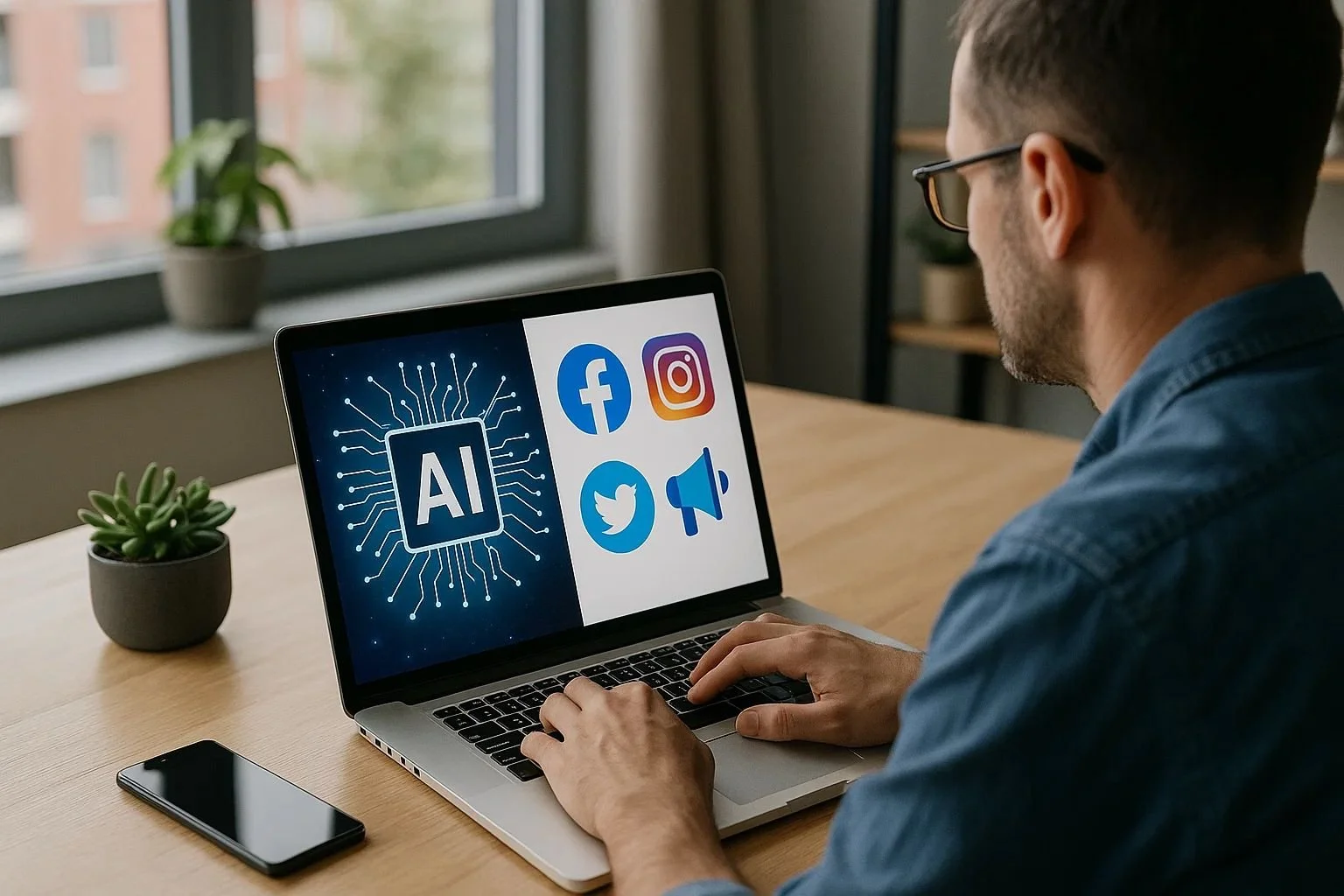Will AI replace traditional social media advertising in 2025?
The 2025 social media advertising landscape is changing at a rapid pace with the help of artificial intelligence (AI). With AI tools taking the role of content creation, audience segmentation, personalization, and optimization, most marketers and companies are wondering: Will AI take over traditional social media advertising entirely? This blog discusses the changing role of AI in social media ads, how AI assists and augments traditional approaches, and why human imagination and strategy continue to be crucial even as AI becomes more prominent.
The AI Revolution in Social Media Advertising
AI is transforming social media advertising by streamlining much of the work that previously had to be done manually and took a lot of time. Top platforms such as Meta and Pinterest have incorporated AI into advertisement making and distribution. For instance, AI can now create numerous variations of advertisement images and content within seconds, optimizing towards top performers at a rapid pace.
Predictive analytics powered by AI helps advertisers place ads strategically, reaching the right audiences at ideal times. AI agents can also manage direct customer interactions through chatbots and virtual assistants, providing personalized responses 24/7. Such innovations streamline operations and boost return on investment (ROI), enabling campaigns to be more targeted, efficient, and scalable.
However, the swift emergence of AI doesn't mean the blanket substitution of conventional social media marketing. Rather, AI is a forceful multiplier that fueling human effort, revolutionizing how campaigns are created and carried out.
The Enduring Value of Human Strategy and Creativity
While AI is phenomenal in efficiency and fact-based decision-making, the imaginative and strategic aspects of social media marketing are still the province of humans. In contrast to AI, human marketers contribute cultural understanding, emotional awareness, and narratives that touch the hearts of diverse groups of people.
Campaigns that resonate strongly around human values, humor, or social issues tend to need discerning judgment and empathy that can't be replicated by AI. Brand voice and campaign direction are led by marketers, who ensure advertising truly represents the company's personality.
Local and regional companies, like Sparkly Maid Orlando and Sparkly Maid NYC, gain a lot from this synergy. AI helps them by streamlining everyday tasks, but human marketers add important personal touches and local knowledge that bring campaigns to life in significant ways.
Agencies like Torres Digital Marketing Chicago are the best examples of this fusion—using AI to automate and precision-engineer while retaining human creativity and customized strategy to drive maximum influence across social media.
AI as a Tool for Hyper-Personalization and Real-Time Adaptation
One of the most promising pieces that AI brings to social media advertising in 2025 is hyper-personalization. AI scans real-time user information—such as behavioral signals, device type, location, and time of day—to dynamically customize ads to people.
This increases ad relevance, which greatly boosts engagement rates compared to generic ads. AI also enables instant testing of various ad variations and learning in real time which creative features resonate best with individual audiences.
Precision like this ensures that brands cut through the noise in a busy social media space, while delivering better customer experience without spamming them with irrelevant material. However, the process necessitates ethical regulation in terms of data privacy and transparency to ensure continued consumer trust.
The greatest marketers are able to leverage AI personalization to enhance human insights, developing campaigns that engage at scale but appear personalized at a one-to-one level.
Challenges and Ethical Concerns with AI-Based Social Advertising
While there are benefits, AI-powered social media marketing also comes with challenges. Privacy issues relating to data gathering and treatment escalate, necessitating adherence to legislations such as GDPR and CCPA. Advertisers need to guarantee ethical use of AI to prevent obtrusive or manipulative ads.
There is also the threat of over-automation resulting in generic content and insufficient brand distinction. Keeping it real in the face of AI-generated advertisements calls for constant human intervention.
In addition, potential AI algorithm biases may distort targeting or messaging if not addressed. Torres Digital Marketing Chicago, among other agencies, stresses integrating AI with ethical principles and creative discipline to steer clear of these trappings and establish credibility with audiences.
The Future: Integration, Not Replacement
As of 2025, AI is not displacing conventional social media advertising but redefining it. The future belongs to the integration of Artificial Intelligence-driven automation with human creativity, strategy, and ethical stewardship.
Advertisers who adopt this two-way approach will discover more effectiveness, wiser targeting, and more compelling campaigns. Small and regional companies gain by employing AI tools to rival the bigger brand names while still holding on to the personal touch with customers.
As AI tech keeps developing, social media marketing will become increasingly dynamic, targeted, and data based making the human factor even more vital as the driving force.
